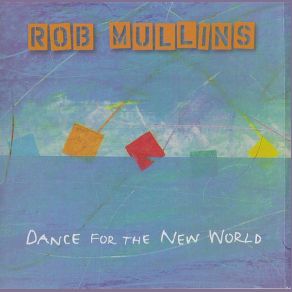Dance for the New World
Download links and information about Dance for the New World by Rob Mullins. This album was released in 1997 and it belongs to Jazz, Crossover Jazz genres. It contains 13 tracks with total duration of 01:00:31 minutes.

|
|
|---|---|
| Artist: | Rob Mullins |
| Release date: | 1997 |
| Genre: | Jazz, Crossover Jazz |
| Tracks: | 13 |
| Duration: | 01:00:31 |
| Buy it NOW at: | |
| Buy on iTunes $9.99 | |
Tracks
[Edit]| No. | Title | Length |
|---|---|---|
| 1. | Obsession | 5:05 |
| 2. | The Time Has Come | 4:45 |
| 3. | Island Girls | 4:31 |
| 4. | Wednesday | 5:16 |
| 5. | Dance for the New World/Intro | 1:41 |
| 6. | Dance for the New World | 5:21 |
| 7. | When Love Gets Deeper (Featuring Brenda Russell) | 4:55 |
| 8. | To Begin Again | 4:59 |
| 9. | Ocean Breeze | 4:45 |
| 10. | Bustin Out | 3:52 |
| 11. | Planet Mullins | 6:17 |
| 12. | Midnite Rendezvous | 4:26 |
| 13. | House of Broken Dreams | 4:38 |
Details
[Edit]One of the true unsung heroes of contemporary jazz, this diverse keyboardist has encountered poor luck with indie labels at almost every turn, building a frequently brilliant catalog that has never been properly marketed to the masses. If Zebra can't do it with this all at once elegant, funky, bold and often humorous dance, genre fans will be denied these pleasures once again. On a disc that incorporates rhythms of the world (samba, Latin, African), Crusaders-influenced soul, and a frenzied hodgepodge sampling tune called "Mullins World" which tries to make sense of the frenzied age of the information superhighway, the one remarkable consistency is the smart way Mullins interacts with horns. He and Wilton Felder capture a "Mercy Mercy Mercy" like vibe on the opener, "Obsession"; Eric Marienthal matches him note for note on the Latin sizzler "Island Girls"; Hollis Gentry's soprano adds eloquence to the laid back "Wednesday"; Greg Vail's tenor parties hard with Mullins on the one true relentless funk piece, "Bustin' Out"; and Tony Guerrero's real trumpet plays along with Mullins' keyboard horns on "To Begin Again." Pretty impressive collaborations, but Mullins saves his greatest duet for the urban-flavored title cut, which breaks in the middle for a transcendant solo by Mark Cargill after the two have already played in unison. Mullins' liner notes inform us that this disc is his attempt to reflect the craziness of the modern world, and he musically captures that vibe without getting self indulgent or inaccessible. Happily, he also finds a a moment in the madness for an affair of the heart, on the closing piano solo, "House of Broken Dreams."